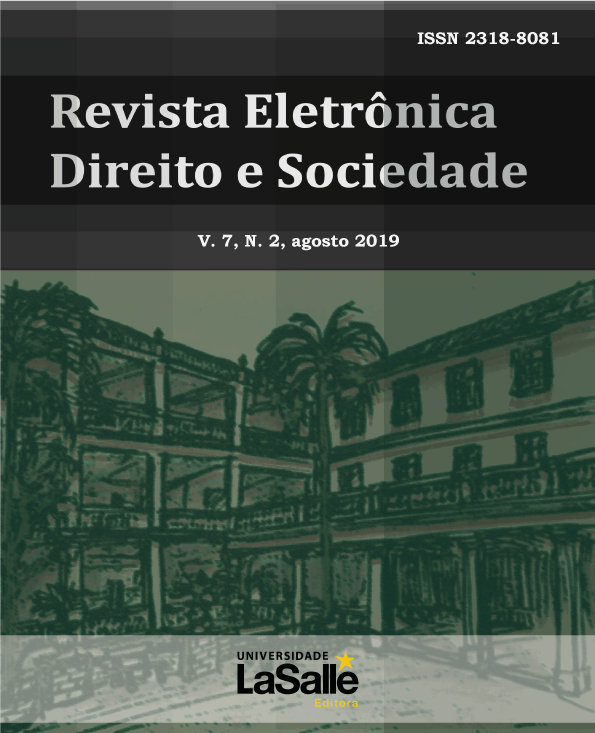Passionate crimes and the (in)effectiveness of the Maria da Penha law: a case study in the District of Santa Rosa - RS
DOI:
https://doi.org/10.18316/redes.v7i2.4896Keywords:
Proteção às Mulheres, Lei Maria da Penha, Crime Passional, Comarca de Santa Rosa – RS.Abstract
O presente artigo aborda os crimes passionais e a (in)efetividade da Lei Maria Da Penha: um estudo de caso na comarca de Santa Rosa (RS), no período de 2010 a 2015, tendo, como foco, o grau de eficácia da Lei nº. 11.340, a partir de do estudo de caso, com a coleta de dados junto a 1ª e 2ª Vara Criminal, na Delegacia Especializada de Atendimento à Mulher e no Centro de Referência Regional de Atendimento à Mulher. Para elaboração da pesquisa utilizou-se como procedimento método hipotético-dedutivo. A contextualização do tema, originou-se de um estudo histórico sobre a proteção da mulher, num contexto de percepções históricas sobre desigualdade de gênero no Brasil, na prática subjugadora sobre a mulher e a situação após a vigência da Lei nº.11.340. Estuda-se, desde a legislação que lhe originou, até a sua estrutura e funcionamento, analisando, ainda, a sua atuação com base na pesquisa realizada sobre a aplicação das medidas protetivas no Município. Ao final, a pesquisa aponta para a importância da rede multidisciplinar, a necessidade de um constante crescimento da rede de apoio, implementação de mais políticas públicas e acompanhamento psicológico do agressor, por parte do Ente Público, bem como, pela efetividade da Lei Maria da Penha, quanto as medidas de proteção, que oferece, segurança e acolhimento necessário a todas as mulheres, sem distinção de classe social, com seus direitos ameaçados ou prestes a perder a vida, desde, que, não deixem de representar nas ações penais condicionadas.
Downloads
Published
Issue
Section
License
Authors who submit their manuscripts for publication in the “REDES” Magazine agree to the following terms:
The authors claim to be aware that they retain copyright by giving “REDES” the right to publish.
The authors declare to be aware that the work submitted will be licensed under the Creative Commons Non-Commercial Attribution License which allows article sharing with acknowledgment of authorship and publication in this journal.
The authors declare to be aware that by virtue of the articles published in this journal have free public access.
The authors declare, under the penalty of the law, that the text is unpublished and original and that they are aware that plagiarism has been identified, plagiarized authors will be informed - willingly, to take legal action in the civil and criminal sphere - and, plagiarists will have their access to the magazine blocked.
The authors state that - in case of co-authoring - all contributed significantly to the research.
Authors are obliged to provide retractions and (or) corrections of errors in case of detection.
The authors are obliged not to publish the text submitted to “REDES” in another electronic journal (or not).
The Electronic Journal Law and Society - REDES - is licensed under a Creative Commons License. Attribution-NonCommercial 4.0 International.Based on work available at "http://revistas.unilasalle.edu.br/index.php/redes/about/submissions#copyrightNotice".
Permissions in addition to those granted under this license may be available at http://creativecommons.org/.

